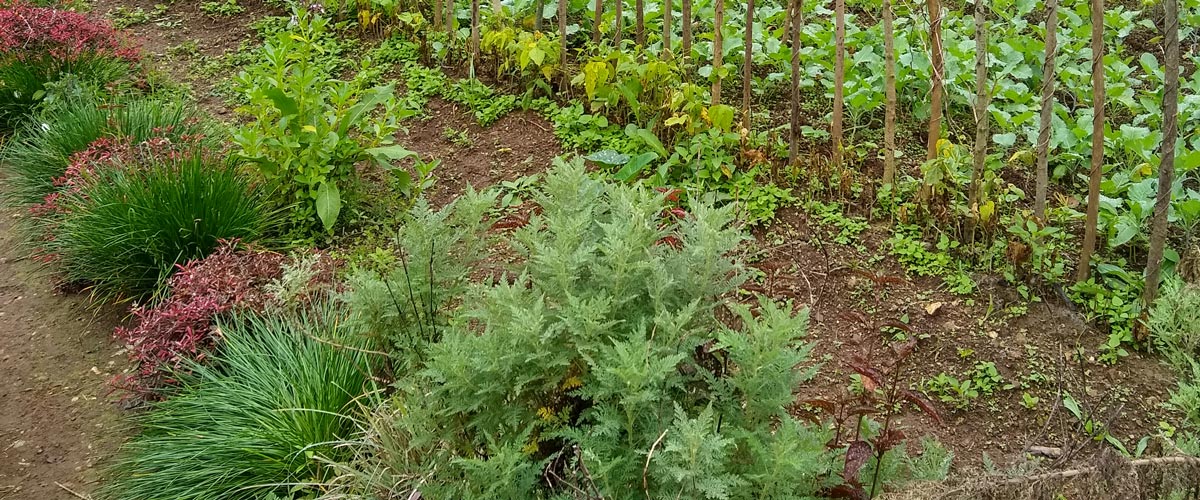
Farmer-Centered Agroecology in Tanzania
Lead Organization:
Sustainable Agriculture Tanzania (SAT)
Partner Organizations:
Local government authorities (Mvomero District Council), Tanzania Organic Agriculture Movement (TOAM), and Sokoine University of Agriculture (SUA)
Community of Practice:
Countries:
Tanzania
Duration:
2/2022—2/2024
Overview:
Climate change, soil erosion, limited land access, lack of capital, and missing infrastructure challenge farmer livelihoods in Morogoro and Tanzania. Organic agriculture is under-researched, with students little engaged in field activities (Saidia, Chilagane, Maro & Wostry, 2012).
Action-oriented learning by spending time on farms and in rural communities can qualify students to bridge the divide between academic learning and beneficiary needs (Lieblein et al., 2010). Scientific knowledge plays an important role in solving security and poverty. Farmers are experts and have knowledge worth sharing.
On the other hand, the call for food sovereignty is rising (La Via Campensina, 2017). Food sovereignty is the right of peoples to healthy and culturally appropriate food produced through ecologically sound and sustainable methods, as well as the right to define their own food and agriculture systems. Proposed is an approach that meets food security while delivering broader social, economic, and environmental benefits and puts family farmers in the center (Nyéléni, 2017).
Yet few farmers today are involved in the research process and therefore unable to influence or control the type of knowledge produced. Local farmer knowledge is often neglected despite its huge value in developing economic, social, and ecologic sustainable farming practices. Participatory science incorporating local knowledge is needed to shift from the top-down research system to an approach that devolves beneficiaries’ responsibility and decision-making power, leading to democratization of research (McIntyre, Herren, Wakhungu & Watson, 2009; Pimbert, 2009).
With its broad experience in participatory action research, SAT has a proven approach to bridging the researcher-farmer gap. Since 2014, SAT has organized seven Workshops for Participatory Research Design (WPRD) and engaged more than 75 student researchers in participatory action research where 300-plus farmers participated directly. More than 800 students benefited through lectures. SAT currently works with a team of 11 lecturers from Sokoine University of Agriculture (SUA).
Grant Aims:
Generate scalable and applicable solutions — tailor-made for small scale farmers and produced through participatory action research — to increase farm productivity, sustainability, and resilience, having positive impact on farmer livelihoods.
Outputs and Outcomes:
Outputs
- Increased farm productivity/sustainability/resilience from participated farmers
- Increased uptake of agroecological and participatory concepts at SUA: 28 students with deep understanding of agroecology and produced knowledge (potential agroecology ambassadors), another 400 student researchers knowledgeable about participatory research methods and can apply them in their research work
- Solutions scaled through SAT innovation platform and through publications
Outcomes
- Research topics and concepts developed by farmers and students, with farmer challenges evaluated using Participatory Rural Appraisal and the core of the entire process being the Workshop for Participatory Research Design (WPRD)
- In 14 villages, research on seven specific clusters bring insights and practicable solutions on minimum of seven problems, with farmers involved through all stages and their recommendations noted in proposal and presentations
- Practicable solutions gained to share and scale with broader network in a policy brief with guidelines scaled through SAT Farmer Training Centre, the Farmer Magazine, consultancy, or SAT homepage; National Farmer Centered Research Conference organized